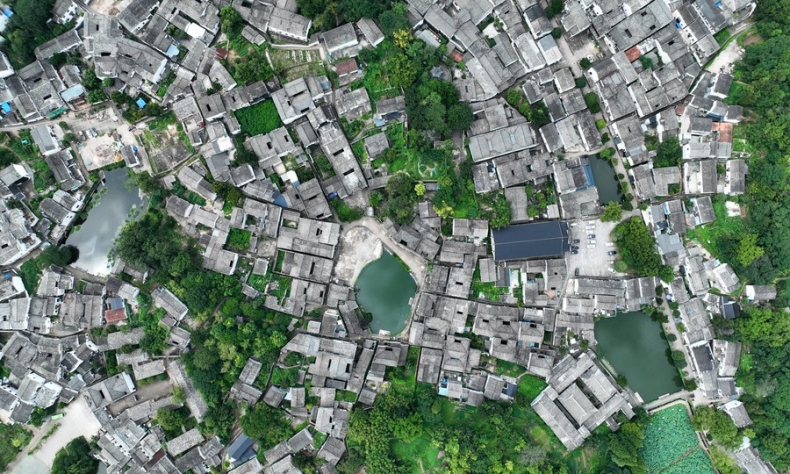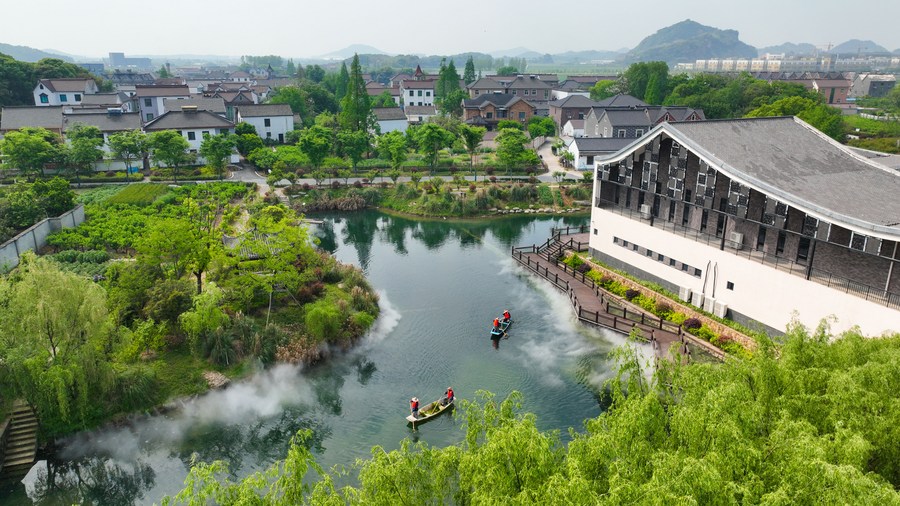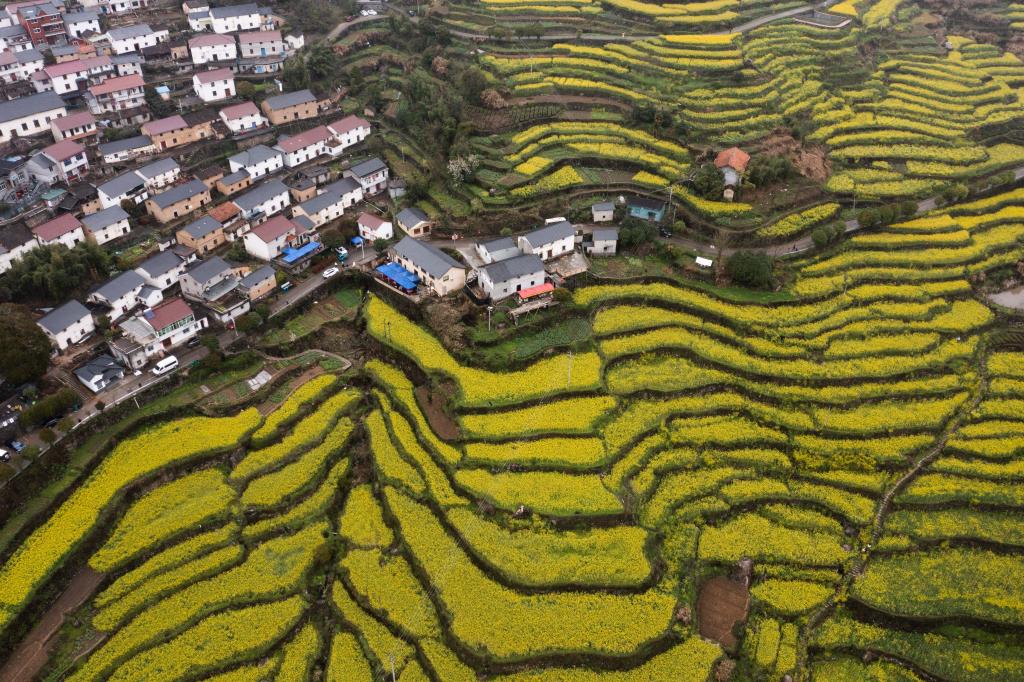A Green Rural Revival Programme Has Brought Great Changes to Zhejiang’s Villages

This exceptionally successful eco-restoration program shows the transformative power of economic and environmental development together.
Two decades ago, on June 5, 2003, Xi Jinping, then Secretary of the Communist Party of China (CPC) Zhejiang Provincial Committee, chaired a mobilization meeting to launch a green rural revival programme which was called “A Thousand Villages Demonstrate and Ten Thousand Villages Follow On”. The programme since its implementation has greatly renovated rural areas and improved the life of local villagers in Zhejiang Province.
The programme began with a mission to improve the dwelling environment in rural areas, but it has achieved far more than that. Fundamentally, the programme brings a revolutionary change to the idea and approach for rural development.
For quite a long time, it was considered difficult to integrate economic development with environmental protection for rural areas. In the past, the environment was often overlooked or even sacrificed in favor of economic development. This had led to many problems, including the worsening living environment. And it always needs much more cost and longer time to treat pollution and restore ecosystem.
In the process of advancing the programme, Zhejiang Province did not limit the work to environment protection, it also took a holistic and systematic approach to rural development, which has not only improved the rural ecological environment, but also changed the ways of production and lifestyle. The programme blazes a new path to bringing economic benefits while conserving the lucid waters and lush mountains.
The annual per capita disposable income of rural residents in Zhejiang has increased from 5,431 yuan in 2003 to 37,565 yuan in 2022. More than half of all administrative villages have earned over 500,000 yuan on average through business for villages’ collective economy.

Over the past years, new business models, including ecological agriculture, rural e-commerce, and rural tourism have been booming in Zhejiang, allowing the rural people to live a well-off life without sacrificing the natural environment.
On September 27, 2018, Zhejiang’s Green Rural Revival Programme, as an outstanding environmental changemaker, received the Champions of the Earth Award, the UN’s highest environmental honor. The programme was “awarded for Inspiration and Action for the transformation of a once heavily polluted area of rivers and streams in East China’s Zhejiang Province.”
“This exceptionally successful eco-restoration program shows the transformative power of economic and environmental development together,” the UN Environment Programme announced in the award presentation.
The programme was targeted at rural areas but it was not limited to the rural areas. Instead, it has brought a profound change in the relationship between urban and rural areas.
The income ratio of urban and rural residents in Zhejiang Province has narrowed down from 2.43 in 2003 to 1.90 in 2022, making the province have the smallest income gap between urban and rural areas in China.
Furthermore, the proportion of graded highways in Zhejiang’s rural areas has reached 100 percent. The province also took the lead to realize the objective in China that rural residents enjoy the same quality of drinking water supply as urban residents.

So, why could Zhejiang Province achieve such great progress over the past two decades? The answer can be found in the practice of the rural revival programme.
On the one hand, local government must not leave rural areas behind while promoting urban development. Before the launch of the programme, provincial governments usually gave top priority to urban areas in promoting local development. Zhejiang’s rural revival programme aims to promote rural development and build beautiful environment for villages, closely following the steps of urban construction and urbanization. The integrated urban-rural development allows no single village to be left behind on the path towards modernization.
On the other hand, the modernization of rural areas does not mean turning villages into cities, but retaining its own characteristics and determining the development model respectively according to local conditions.
The programme has brought about changes in the way of village governance, establishing a new village governance model based on villages participating in construction and governance as well as sharing the benefits of development. Most importantly, the programme has a positive influence on strengthening unity and cohesion of villagers. Villagers are encouraged to participate in discussing village affairs and reaching consensus to make decisions, thus realizing people’s democratic governance in rural areas.
At the critical moment when Zhejiang’s development was facing transformation, the programme was like a wrench that changes the track of a train, pushing the rural development of Zhejiang to a fast track and making it advance further afield.
Translated by He Yuting and Zhang Mengyu
Copyedited by Jamie Wright
Editor: Bai Shi
 Facebook
Facebook
 Twitter
Twitter
 Linkedin
Linkedin
 Google +
Google +










